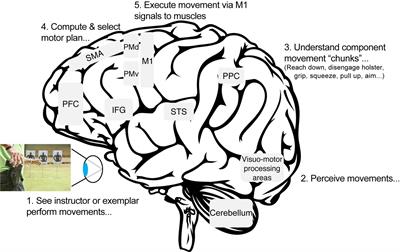EDITORIAL
Published on 26 May 2020
Editorial: De-escalating Threat: The Psychophysiology of Police Decision Making
doi 10.3389/fpsyg.2020.01112
- 2,834 views
- 4 citations
27k
Total downloads
157k
Total views and downloads
Select the journal/section where you want your idea to be submitted:
EDITORIAL
Published on 26 May 2020
REVIEW
Published on 07 Nov 2019
ORIGINAL RESEARCH
Published on 04 Oct 2019

MINI REVIEW
Published on 20 Sep 2019

CONCEPTUAL ANALYSIS
Published on 11 Sep 2019

PERSPECTIVE
Published on 09 Aug 2019

REVIEW
Published on 07 Aug 2019

ORIGINAL RESEARCH
Published on 04 Jul 2019

ORIGINAL RESEARCH
Published on 03 Jul 2019

ORIGINAL RESEARCH
Published on 09 Apr 2019

